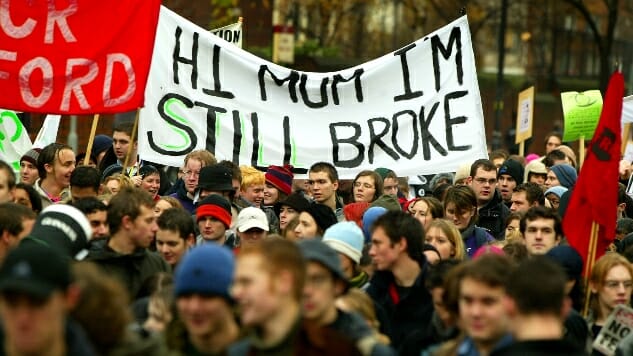U.S. Student Loan Debt Sets Record, More than Doubling the Amount Outstanding After the Recession
Photos by Scott Barbour/Getty, Sion Touhig/Getty
U.S. student loan debt reached a record $1.465 trillion last month, according to new analysis by Bloomberg.
That number is more than double the $675 billion that was outstanding at the end of the recession in June 2009.
Today, student loan borrowers are facing serious debt burdens: Over 2.7 million borrowers owe over $100,000, of which about 700,000 owe $200,000 or more, according to data from the U.S. Department of Education.
-

-

-

-

-

-

-

-

-

-

-

-

-

-

-

-

-

-

-

-

-

-

-

-

-

-

-

-

-

-

-

-

-

-

-

-

-

-

-

-








































